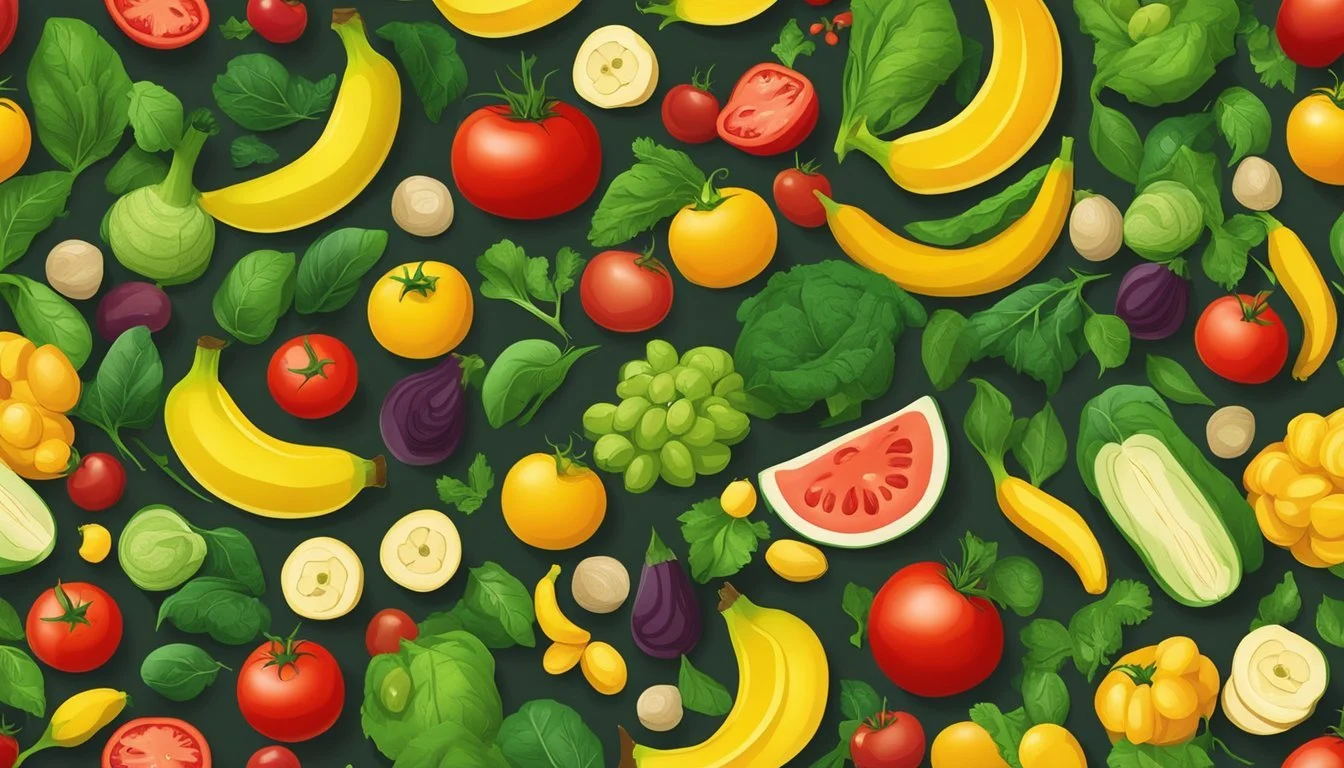Carnivore Diet vs. Vegetarian Diet
Analyzing the Ethics and Health Implications of Eating Meat
The contemporary debate on dietary choices often centers around the carnivore and vegetarian diets, which stand in stark contrast in terms of ethics, health, and nutrition. The carnivore diet is primarily based on animal products, with advocates touting benefits such as improved energy levels and mental clarity. On the other hand, vegetarians exclude meat from their diets for varied reasons including animal welfare concerns, environmental impact, and perceived health advantages supported by research linking plant-based diets to lower rates of heart disease and other ailments.
The ethical discourse is complex, as it involves consideration of animal rights, environmental stewardship, and sustainability. Vegetarian and vegan diets are lauded for causing less harm to animals and reducing the ecological footprint due to lower land use, water use, and greenhouse gas emissions compared to diets high in meat. Conversely, proponents of meat consumption often reference responsible farming practices and the naturalness of an omnivorous diet as justifications for the ethical consumption of meat.
In terms of nutrition, both diets aim to promote health, yet they present unique challenges requiring attention. Vegetarians and vegans need to be conscious of potential nutrient deficiencies, such as vitamin B12, and may need to seek alternative sources or supplements. Carnivore dieters might focus on ensuring variety within their meat selection to prevent nutrient redundancies or excesses. Therefore, individuals must consider their nutritional needs, ethical values, and the body of scientific research when choosing between these diets.
Understanding the Carnivore and Vegetarian Diets
In the realm of diets, understanding the fundamental differences between carnivore and vegetarian diets is crucial. These diets not only diverge in terms of their food sources but also have distinctive nutritional profiles that impact their adherents' health in various ways.
Defining Carnivore Diet
The carnivore diet strictly consists of animal products. Individuals following this diet consume mainly meat, fish, and other animal-derived foods, eschewing all forms of plant-based nutrition. Proponents argue for its benefits in fat reduction and muscle mass improvement due to high protein content.
Defining Vegetarian Diet
On the other side of the dietary spectrum, the vegetarian diet eliminates most or all animal products. Adherents get their nutrients from fruits, vegetables, grains, nuts, and seeds, with lacto-ovo vegetarians including dairy and eggs. A vegan diet is a stricter form of vegetarianism that excludes all animal products.
Nutritional Profile Comparison
Protein
Carnivore Diet: High (mainly from animal sources)
Vegetarian Diet: Varied (plant sources like legumes and soy)
Iron
Carnivore Diet: High (heme iron from animal flesh)
Vegetarian Diet: Varied (non-heme from plants, less absorbable)
Vitamin B12
Carnivore Diet: Usually sufficient
Vegetarian Diet: Often requires supplementation
Dietary Fiber
Carnivore Diet: Lacking
Vegetarian Diet: Rich in fruits, vegetables, grains, and legumes
Fat and Cholesterol
Carnivore Diet: Often higher levels
Vegetarian Diet: Typically lower levels, with more unsaturated fats
The carnivore diet provides an abundant source of protein and heme iron, which is readily absorbed by the body, but can lead to high cholesterol due to its fat content and lack of dietary fiber. In contrast, the vegetarian diet offers a diverse array of vitamins and phytonutrients from plant sources and has higher dietary fiber, which supports digestive health. However, vegetarians and particularly vegans may need to be mindful of potential nutrient deficiencies in iron and vitamin B12, and ensure they are consuming complete proteins through a varied diet.
Health Implications and Benefits
When comparing carnivore and vegetarian diets, the implications on health vary significantly, particularly in relation to chronic diseases such as heart disease, cancer, blood pressure, and diabetes.
Impact on Heart Disease
Research has consistently shown that vegetarian diets may be associated with a lower risk of heart disease. This is partly because such diets typically include higher amounts of fiber, antioxidants, and phytonutrients, which are beneficial for heart health. On the other hand, excessive intake of red meat, especially processed meat, has been linked to an increased risk of heart disease, largely due to higher levels of saturated fat and cholesterol.
Cancer Risks in Different Diets
The relationship between diet and cancer risk is complex; however, some studies suggest that vegetarian diets might reduce the risk of certain types of cancer, such as colorectal cancer. This benefit may stem from the high intake of fruits, vegetables, and fiber. Diets high in red and processed meat have been categorized by some health agencies as a probable risk factor for some cancers.
Managing Blood Pressure and Diabetes
Vegetarian diets can be beneficial in managing blood pressure and type 2 diabetes. These diets are often rich in whole grains, nuts, fruits, and vegetables, which can help maintain healthy blood pressure levels and improve insulin sensitivity. Contrastingly, carnivore diets, which tend to be low in carbohydrates, may also have a role in blood sugar regulation, although long-term effects on diabetes management are yet to be extensively studied.
Ethical Considerations of Diets
When discussing the ethics of diets, one must weigh animal welfare concerns and moral and philosophical perspectives. These factors play a significant role in shaping individual decisions on meat and plant-based consumption.
Animal Welfare Concerns
The welfare of animals is a central ethical issue in the debate between carnivorous and vegetarian diets. Advocates argue that meat consumption inherently involves the killing and often suffering of animals. The intensive farming required to support widespread meat consumption leads to the control and harm of billions of animals annually. Raising animals for food also requires substantial land and water resources, which raises questions about the sustainability of such food systems and their impact on food security.
Moral and Philosophical Perspectives
Philosophical arguments often address the morality of eating animals, touching upon the sentient nature of animals and their capacity to experience pain and pleasure. Some ethical theories suggest that causing unnecessary suffering is morally wrong, and since meat can be nutritionally substituted by plant-based sources, its consumption could be considered unnecessary. Conversely, some arguments defend meat eating based on natural human practices, ecological balance, and the possibility of ethical livestock farming practices. Each stance carries implications for environmental stewardship and food security, as the production of animal products and the alternatives have varying impacts on ecosystems and resource use.
Environmental Impact
The environmental impact of our dietary choices is significant, with a clear distinction between the effects of meat consumption and plant-based diets on climate change, greenhouse gas emissions, and the sustainability of food production.
Climate Change and Food Production
Food production plays a critical role in climate change, with agriculture accounting for about a quarter of global greenhouse gas emissions. Plant-based diets necessitate less land and are generally considered more sustainable. In contrast, meat-heavy diets require more resources, such as land for grazing and feed production, contributing to deforestation and biodiversity loss.
Greenhouse Gas Emissions and Meat
The livestock sector is a substantial contributor to global greenhouse gas (GHG) emissions. Studies have reported that meat production, especially beef and lamb, generates high levels of GHGs per unit of food produced when compared to plant-based foods. For instance, beef production can emit up to 50 times more GHGs than producing the same amount of plant-based protein.
Sustainability of Plant-Based Eating
Plant-based diets are associated with a lower environmental impact. For example, vegans may have roughly 30% of the dietary environmental impact of high-meat eaters concerning GHG emissions. This includes a significant reduction in land use, water use, water pollution, and a lesser impact on biodiversity, indicating higher sustainability of vegan and vegetarian diets compared to meat-focused diets.
Diet and Lifestyle Factors
The choice between carnivore and vegetarian diets is often influenced by individual lifestyle factors such as ethnicity, exercise routines, and the impact of social media trends. These elements play significant roles in shaping dietary habits and the effectiveness of these diets.
Influence of Ethnicity, Gender, and Demographics
Dietary patterns are strongly influenced by ethnicity, as cultural norms dictate food choices and meal patterns. In the United States, diverse racial and ethnic groups exhibit varying preferences which can align more closely with either vegetarian or meat-heavy diets. Gender also plays a role, with research indicating that females may be more likely to adopt vegan diets, potentially due to health or ethical concerns, while males might lean towards higher calorie intake and protein-rich diets. Demographic factors such as age, income, and education can further segment these preferences, with younger individuals and those with higher education levels more likely to explore veganism or vegetarianism.
Role of Exercise in Diet Effectiveness
Exercise serves as a critical component in maximizing the health benefits of any diet. Vegetarians might need to ensure adequate protein intake to support muscle repair and growth, especially if they are actively engaging in physical activity. Individuals on a carnivore diet might focus on balancing their higher calorie intake from meats with regular exercise to maintain cardiovascular health and manage weight. An exercise regimen tailored to the diet type can enhance overall health outcomes and improve energy levels.
Social Media and Diet Trends
Social media platforms have become powerful tools in shaping diet trends and influencing public opinion on nutrition. Sharing of meal plans, recipes, and diet results can sway individuals towards a particular diet. Social media influencers often promote vegan diets, appealing to a broad audience, including those concerned with animal welfare and environmental issues. These online spaces create communities where one can find support and information, making dietary shifts like transitioning to vegetarianism or a meat-focused diet more accessible and appealing to wider demographics.
Challenges and Considerations
Whether one chooses a carnivore diet or a vegetarian lifestyle, each comes with distinct nutritional challenges and considerations. The right balance is key to avoiding deficiencies and maintaining health.
Dealing with Nutritional Deficiencies
A carnivore diet—high in animal-based protein—might lead to a lack of dietary fiber while potentially increasing cholesterol levels. Conversely, a vegetarian or vegan diet can prevent certain diseases but may fall short in providing sufficient vitamin B12, iron, and calcium, which are abundant in meat. Supplementing with specific vitamins, such as vitamin D and B12, is often necessary for those not consuming animal products.
Understanding Meat Alternatives
Plant-based eating enthusiasts turn to meat alternatives to aid in their quest for sustainable living without compromising protein intake. These alternatives can be made from soy, legumes, or textured vegetable protein. They're designed to mimic the taste and texture of meat, providing an acceptable source of protein for many vegetarians and vegans. However, their nutritional profiles vary and should be considered within the context of one’s overall diet.
Dietary Diversity and Balance
Both meat-eaters and vegetarians must seek dietary diversity to ensure a balance of essential nutrients. For those on a plant-based diet, it's essential to include a variety of vegetables, fruits, whole grains, nuts, and seeds to cover the spectrum of vitamins and minerals needed, like vitamin C, calcium, and iron. Meat eaters, while typically getting enough protein, must remember to include diverse foods to obtain other nutrients and maintain a balanced diet.
Conclusion
Debates over the consumption of animal-based protein versus plant-based diets often consider the impact on health, ethical considerations, and environmental sustainability. Those advocating for plant-based diets highlight the potential health benefits, such as lower risks of heart disease and certain cancers. Conversely, some non-vegetarians argue for the nutritional completeness of a carnivore diet, which includes essential amino acids and vitamins found readily in meat.
Health Concerns:
A diet high in animal-based proteins is sometimes linked with increased health problems, including heart disease and certain types of cancer. However, moderation and a balance of nutrients are critical, as both diet types can lead to nutritional deficiencies if not well-planned.
Ethical Considerations:
Ethical arguments focus on animal welfare and the moral implications of meat consumption. Plant-based diets tend to resonate with those prioritizing animal rights, while some non-vegetarians contend that ethical meat consumption is possible through responsible sourcing.
Environmental Impact:
The environmental footprint of meat production is a point of contention. Advocates for vegetarianism often point to the lower environmental impact of plant cultivation when compared to raising livestock, which requires more resources and contributes to greenhouse gas emissions.
Given the complexities, individuals must weigh the health benefits, ethical considerations, and environmental impacts when choosing their diets. They should consider consulting with nutrition experts to ensure their dietary choices align with personal health goals and ethical values.







